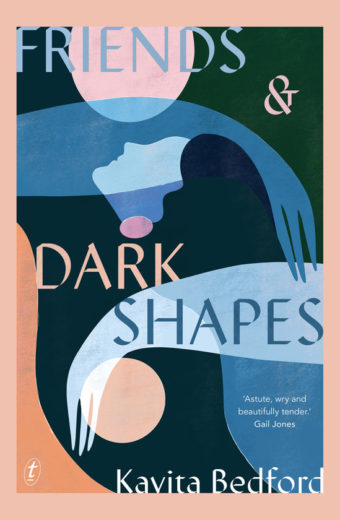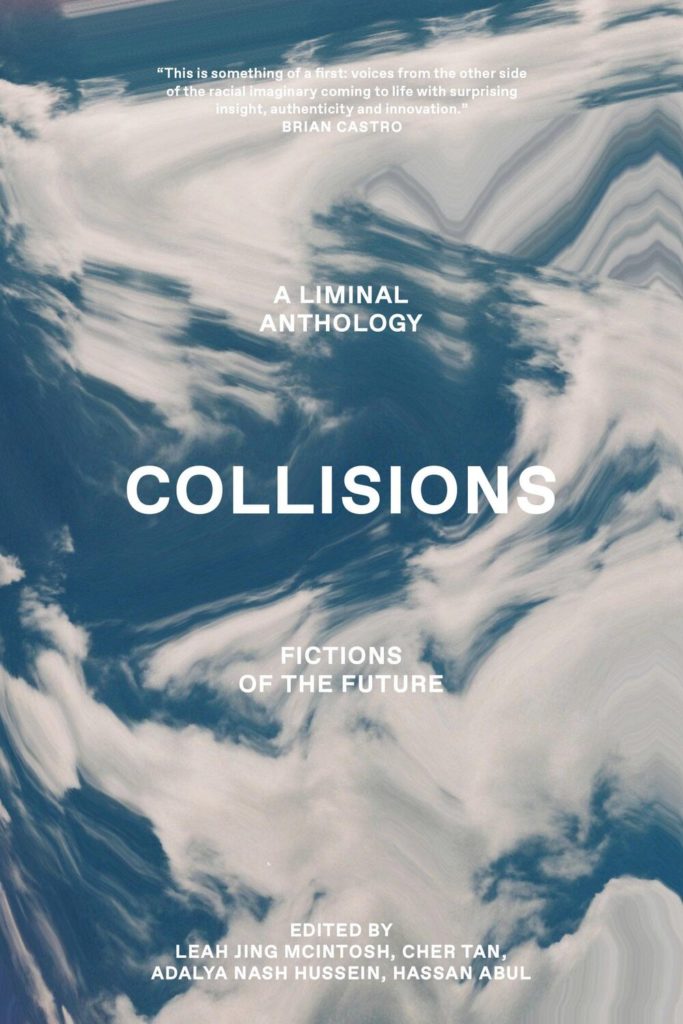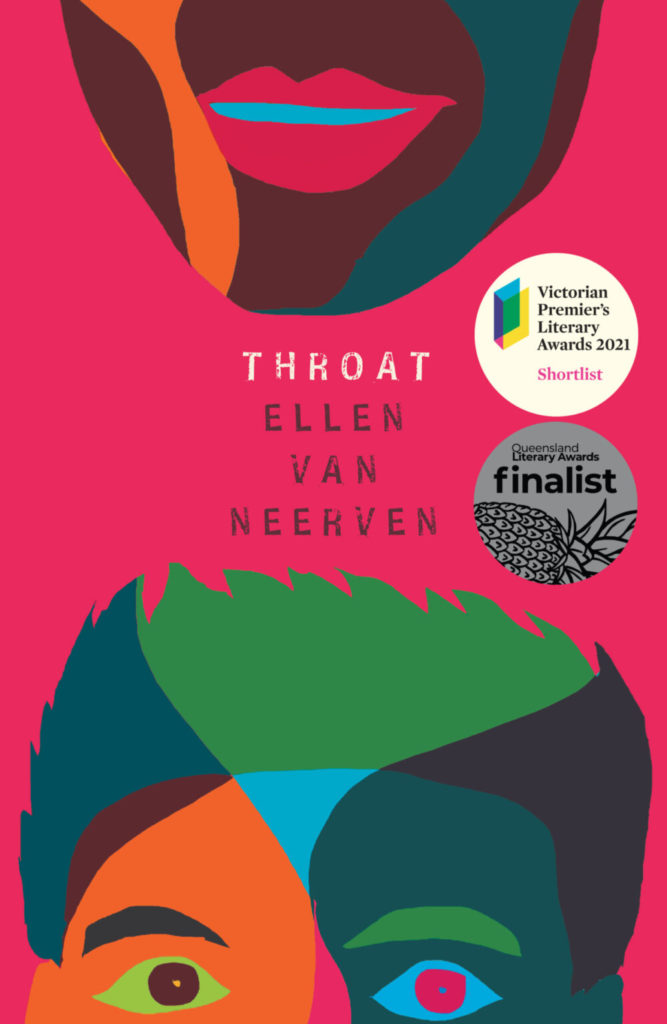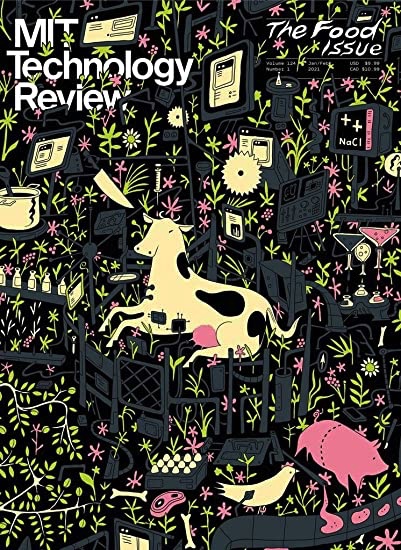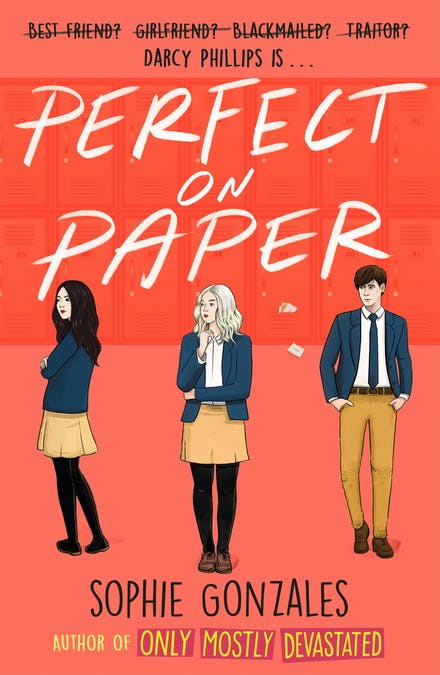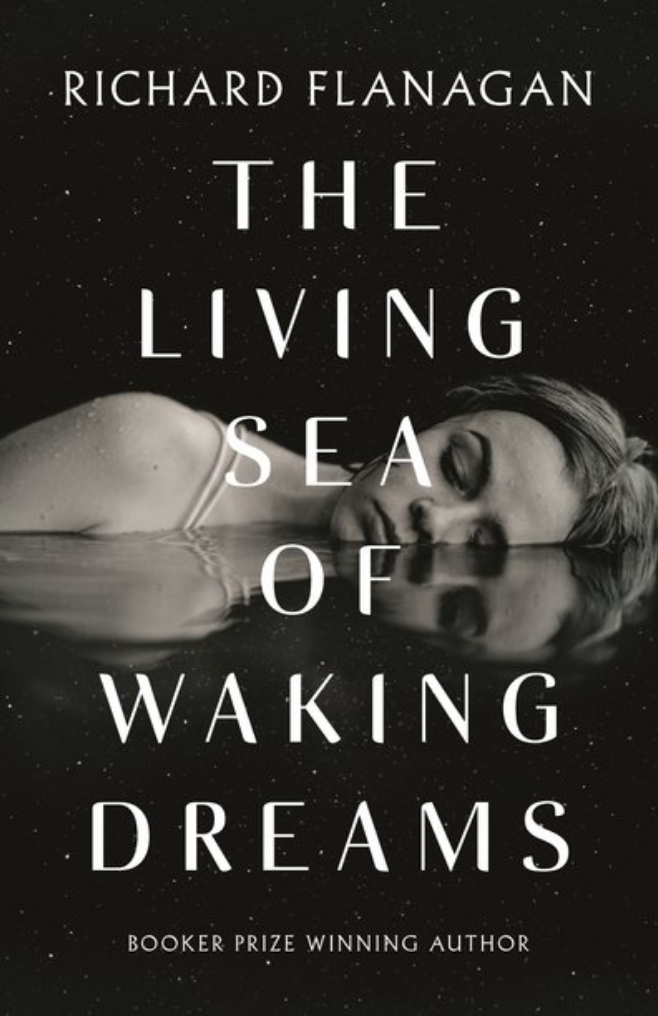Friends & Dark Shapes by Kavita Bedford
Ashley Kalagian Blunt, Senior Program Officer
Friends & Dark Shapes is Australian-Indian author Kavita Bedford’s debut novel. A Sydney local, Bedford crafted the story as a love letter to her hometown. Its series of textured, lyrical vignettes centre around an unnamed protagonist, her share-house friends, and the lives of others they encounter across a complex, multicultural city where it’s easy to meet people but hard to make lasting connections. Grieving the loss of her father, the protagonist tries to shape her future in a city while tracing how it has shaped her. Bedford’s writing is poignant and immersive, and at one point, a certain Inner West writing centre makes a cameo appearance.
Collisions: Fictions of the Future
A Liminal anthology edited by Leah Jing McIntosh, Adalya Nash Hussein, Cher Tan and Hassan Abul
Annie Zhang, Acting Project and Communications Officer
I have been reading Collisions: Fictions of the Future, a delightful anthology of short stories by Indigenous writers and writers of colour. The sixteen stories are all beautifully written, and full of surprising prose and incisive slices of social commentary.
I loved Victor Chrisnaa Senthinathan’s Suburban Graveyard, where an entrepreneurial father leases his backyard out as a cemetery because we’ve run out of space to bury our dead. In Claire Cao’s incredibly touching story See You Tomorrow, a Cabramatta grandmother unspools old memories as she meets an old friend. Mykaela Saunders’ Terranora is a vivid, beautiful portrayal of a future where Indigenous people have sovereignty over a land once known as South Tweed Heads. Bryant Apolonio’s Bad Weather traces a character across two timelines, in a visually stunning piece that unveils new layers of meaning on each reread.
This anthology compiles the longlist of the inaugural Liminal Fiction Prize. Liminal editor Leah Jing McIntosh established this prize in 2019 in response to the whiteness of Australia’s literary institutions. In the anthology’s introduction, Leah considers Australia’s genocide and colonial violence towards Indigenous people, as well as the nation’s marginalisation of non-white people. These brutalities define our past and continue to shape our present — but this volume hopes for a different kind of future.
Throat
by Ellen van Neerven
Jane McCredie, CEO
Ellen van Neerven’s second poetry collection, Throat, is a powerful, passionate roar of a book, challenging preconceptions about race, gender and poetry itself. Van Neerven deals with their complex subject matter with wit and skill, constantly subverting the reader’s expectations. This angry, sad, tender, hopeful work is also a powerful call for justice. At its heart is a draft treaty between author and reader that asks:
Who is the custodian of this book?
How do we co-exist on this page?
How can we re-imagine custodianship?
Is this an agreement or a series of unanswered questions?
Are you willing to enter an agreement that is incomplete and subject to change?
MIT Technology Review
David Henley, Business and Property Manager
This year I took out a subscription to the MIT Technology Review which gives me access to their online articles, an e-newsletter and a printed magazine.
The online articles are often topical and give a deeper explanation of the science and development behind various issues and happenings than one gets from regular media. Recent examples include an analysis of the Facebook vs Australia debacle of recent days. They don’t take side but explore the issues, not just for Australia but how all countries are trying to balance the influence of big tech.
The first issue of the magazine I’ve received is focussed on food. For the US, the whole food chain has come under great stress during COVID and this focuses on all the ways technology interacts with our food supplies as well as the business and legal problems which can often cause enormous amounts of food waste.
It’s been two good months of reading so far and I’d definitely recommend to any sciency/nerdy people – especially sci-fi writers.
Perfect on Paper by Sophia Gonzales
Claire Thompson, Program Officer
My friend enjoys one of the many perks of working in a bookstore, which is getting to read books before they hit the shelves. The other day she lent me an advance copy of Perfect on Paper by Sophie Gonzales and I loved it.
Perfect on Paper is an entertaining, YA, queer rom com. Set in an American high school, the protagonist, Darcy Phillips, runs a business giving relationship advice to other students. All they need to do is place a letter with some cash in an unallocated locker, locker 89, which only Darcy has access to, and within a few days they’ll receive an email helping them solve their relationship problems. No one knows Darcy is behind the advice, and her business relies on her anonymity. All is going well until the attractive Aussie boy, Brougham, finds out Darcy is behind locker 89, and begs her to use her relationship prowess to help him win his ex-girlfriend back, in exchange for keeping Darcy’s semi-illegal business a secret. He also offers to pay her a lot of money for her time and Darcy agrees. Unsurprisingly, complications ensue, and the reader is led to cringe and laugh as they witness Darcy’s misunderstandings, miscommunications, and misjudgements. Because, while Darcy can give good relationship advice to others, she can’t seem to apply the same relationship know-how to her own love life.
Gonzales uses her experience as a psychologist to explore why we behave the way we do in relationships, and how we can become more self-aware and overcome our issues. If you’re looking for a light-hearted, funny read with some romance thrown in, then I’d recommend Perfect on Paper. You can find a copy in your local bookstore from 9 March.
The Living Sea of Waking Dreams by Richard Flanagan
Julia Tsalis, Program Manager
Francie is dying but her children won’t let her. The children are successful Sydney-based architect Anna, domineering financial manager Terzo, and Tommy, a failed artist who does the actual work of caring for their mother but is bullied by his siblings who consider his lack of success an embarrassment.
They frame the increasingly drastic medical interventions to keep their mother alive as their way of showing how much they love her and how important life is, but even Anna acknowledges that these measures are more about protecting them from the feelings of loss.
At the same time parts of Anna’s body start disappearing. At first a finger, then another, and then other body parts. These seemingly fantastical disappearances are taking place in a very real, familiar world of catastrophe and social media distraction. Fires are burning out of control, smoke blankets the sky, and animals are driven to extinction. Anna’s habitual way of dealing with these global tragedies, and now the personal tragedy of her mother’s decline, is to retreat and slip away into the dopamine haze of social media. During a difficult conversation with the doctor about her mother she pretends to have an urgent work call so she can step away to find relief in scrolling through Instagram.
There are clearly links to be made between these individual personal disappearances and the environment: seemingly inexplicable losses that are too painful to acknowledge. Francie, the dying mother, an embodiment of the earth, the loss of which is too painful to acknowledge so instead money and technology is thrown at the problem to try and make it go away, but not actually deal with the situation. Tommy captures this: “It was as though everyone was using words to avoid using words for what words were used for.” At times these metaphors feel a bit heavy handed, but nonetheless powerful, and all too real. Flanagan finds the words to encapsulate what we are finding so hard to confront and respond to.
The book cover is beautiful. Underneath the glossy black book jacket the cover is made of vibrant green bird feathers with delicate orange stitching on the binding, paying homage to the orange-bellied parrot. It’s been a long time since I’ve seen such a beautifully designed book.
*
More from Writing NSW
Check out our full range of in-person writing courses in Sydney, our online writing courses and our feedback programs to see how we can help you on your writing journey. Find out about our grants and prizes, as well as writing groups across NSW, and sign up to our weekly newsletter for writing events, opportunities and giveaways.

